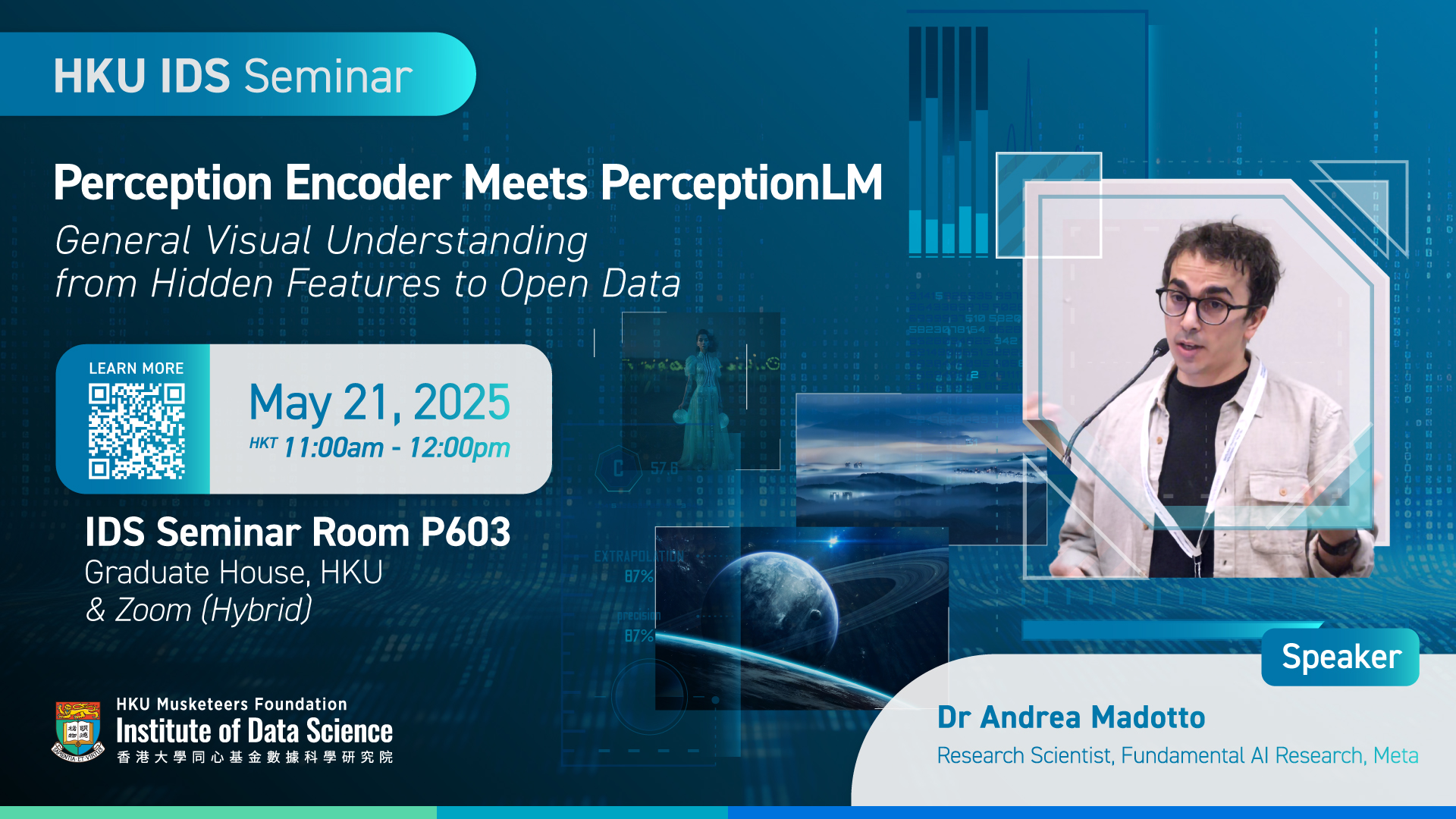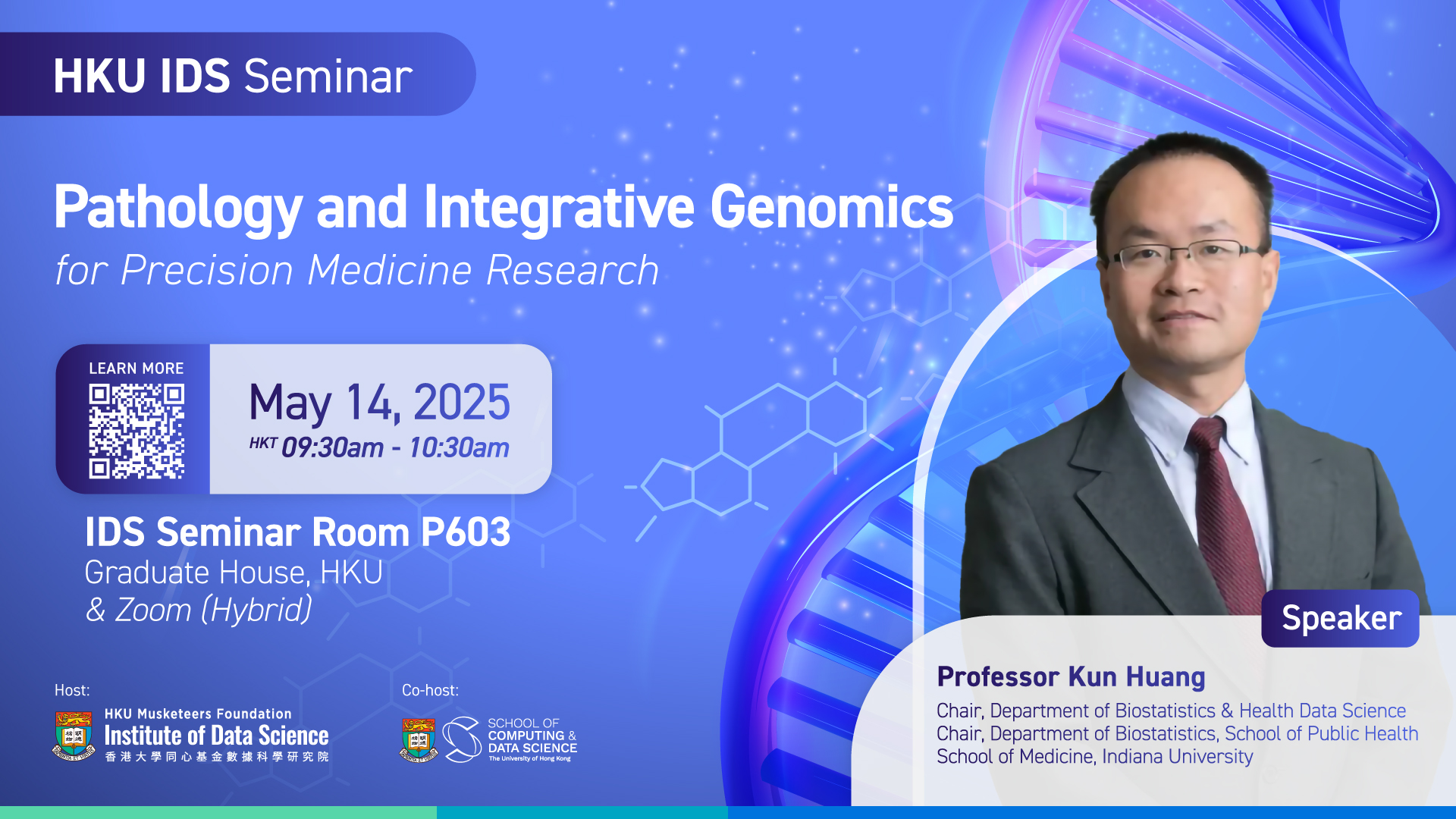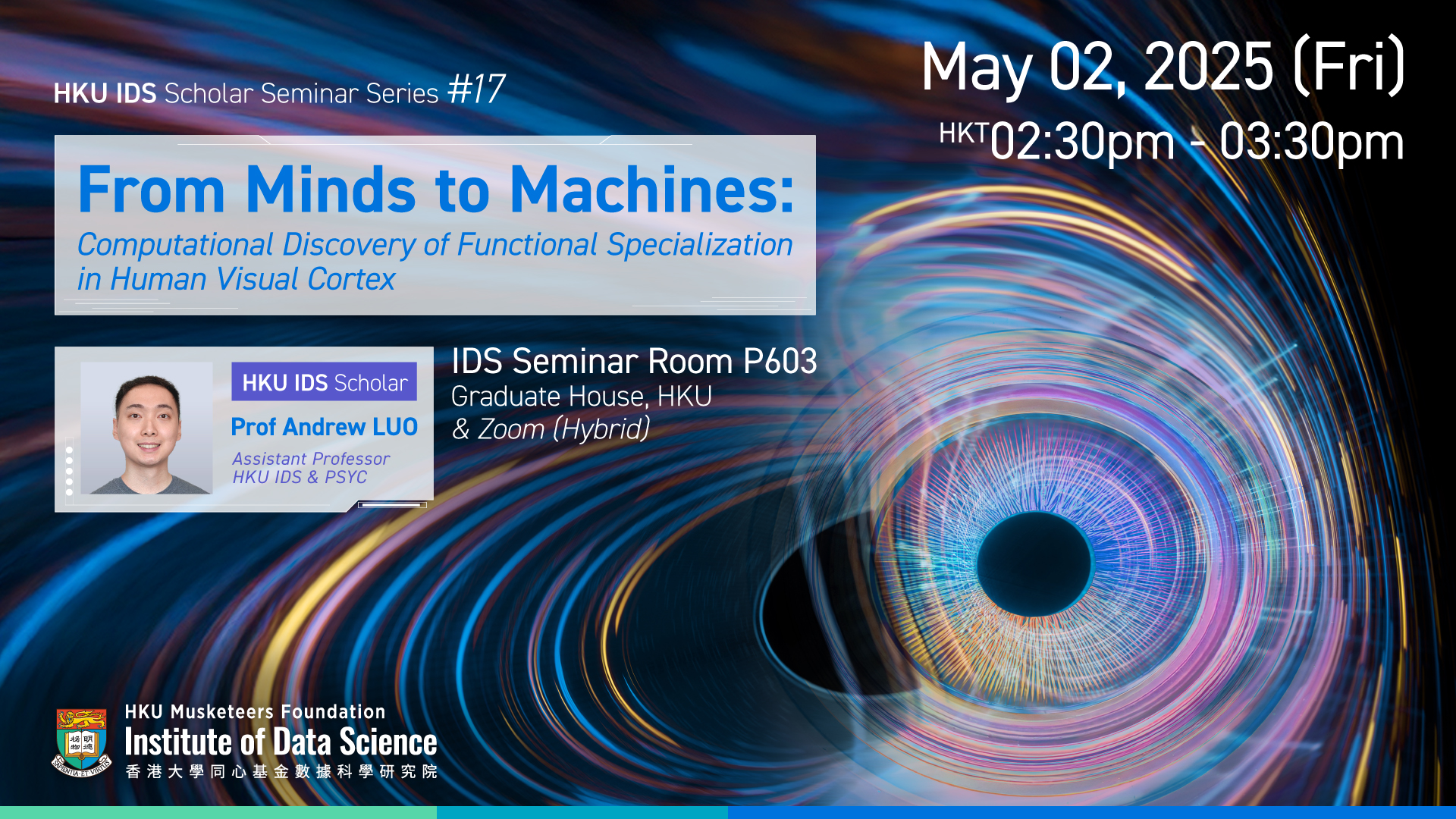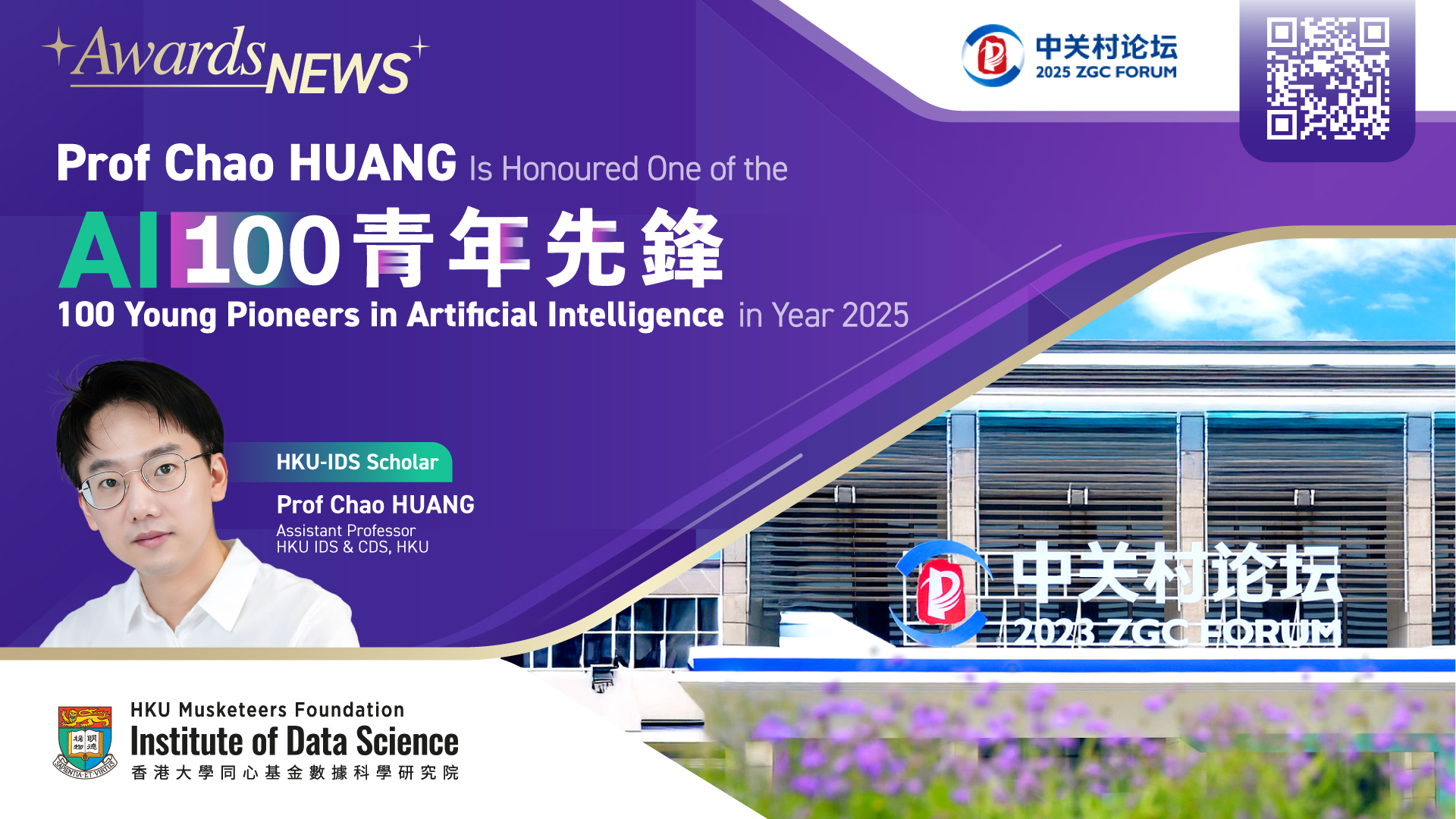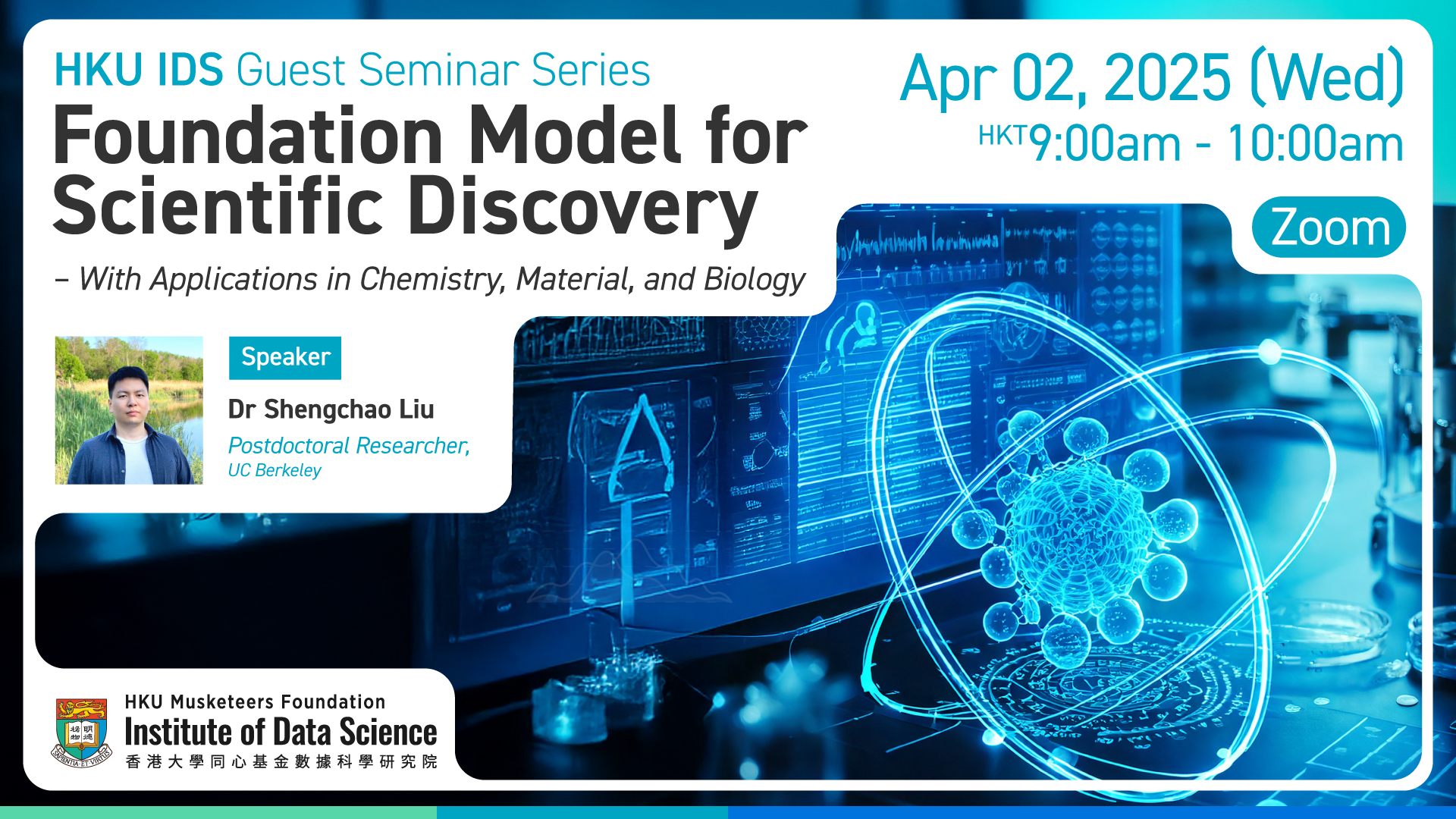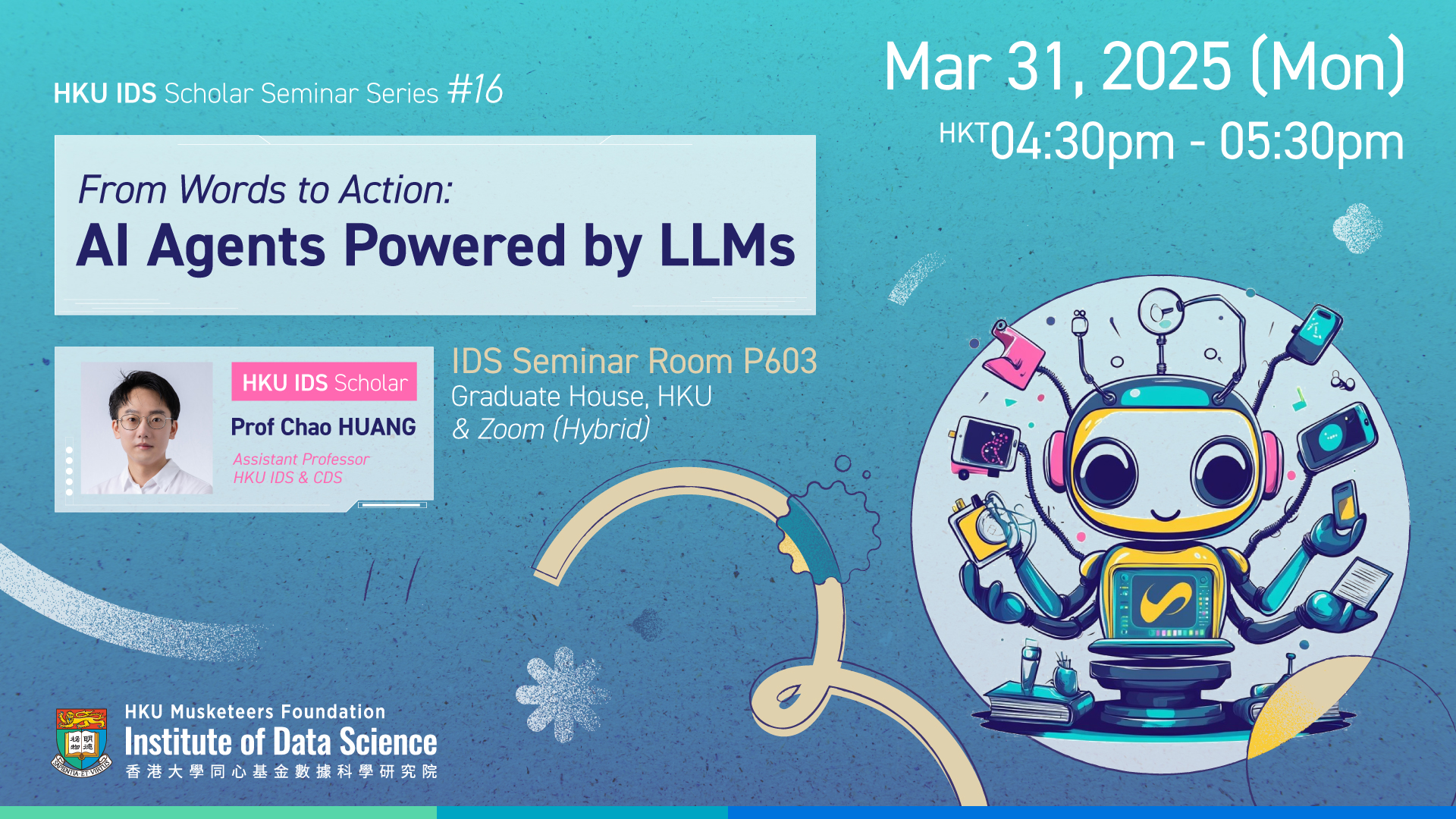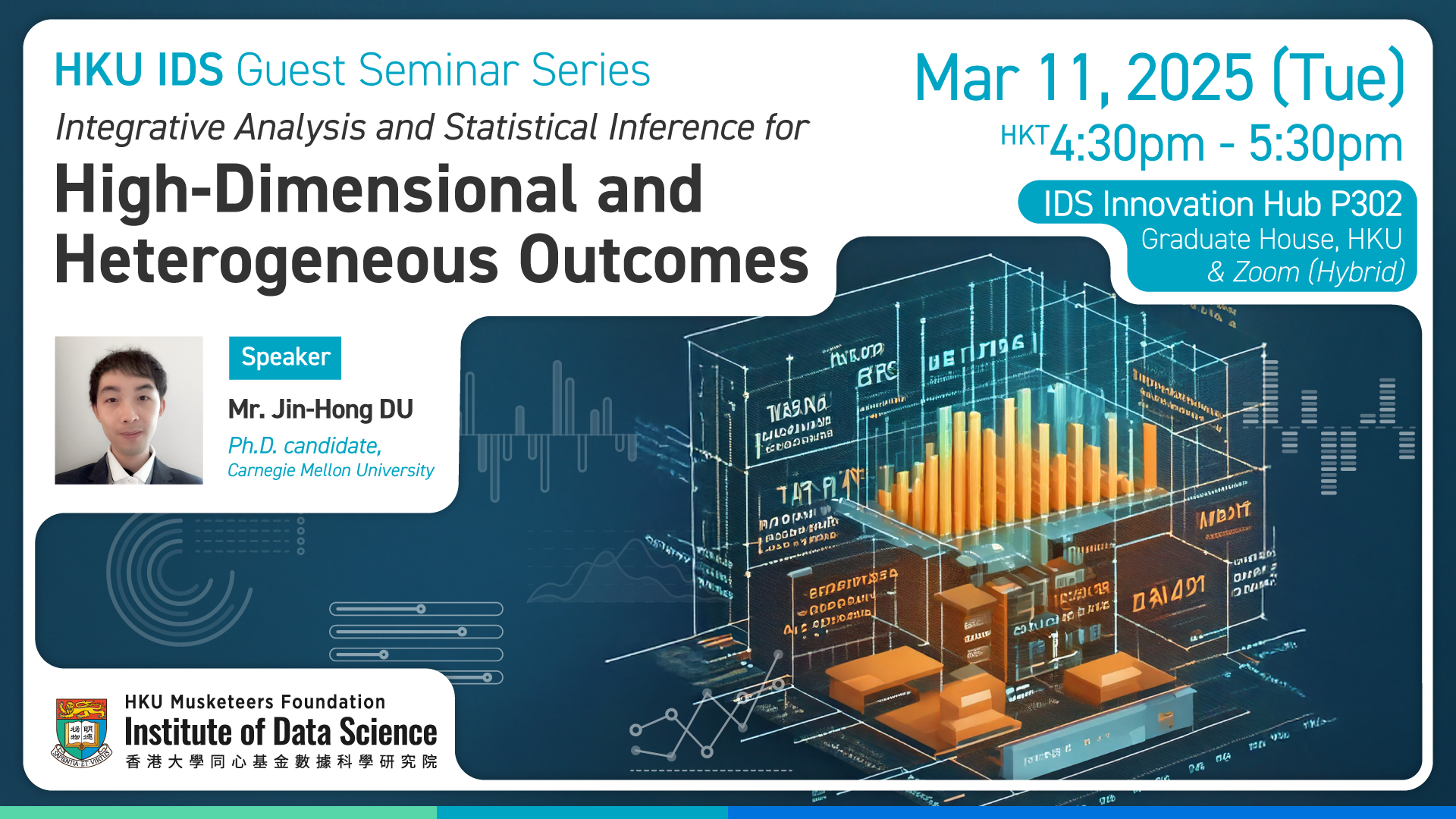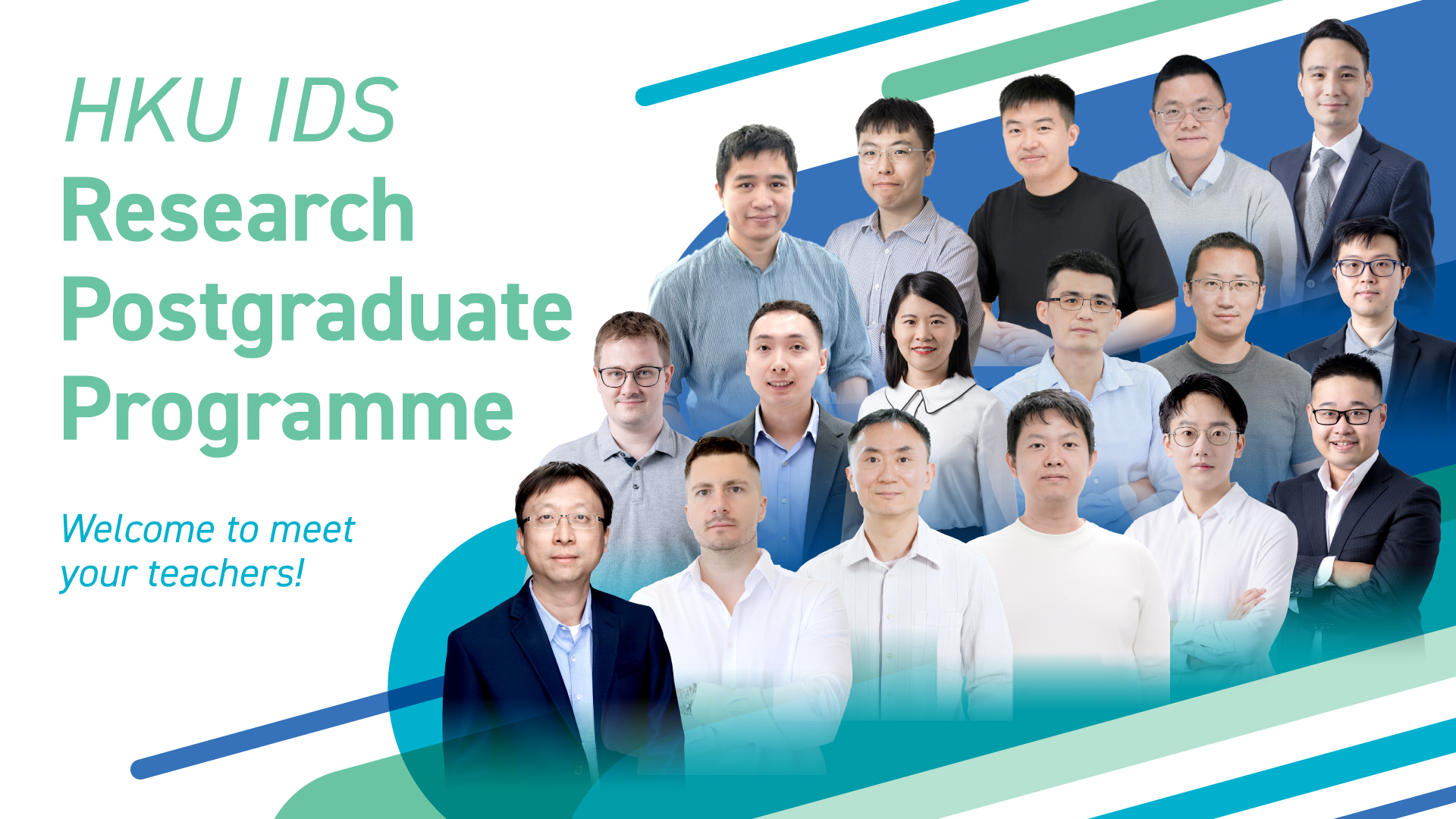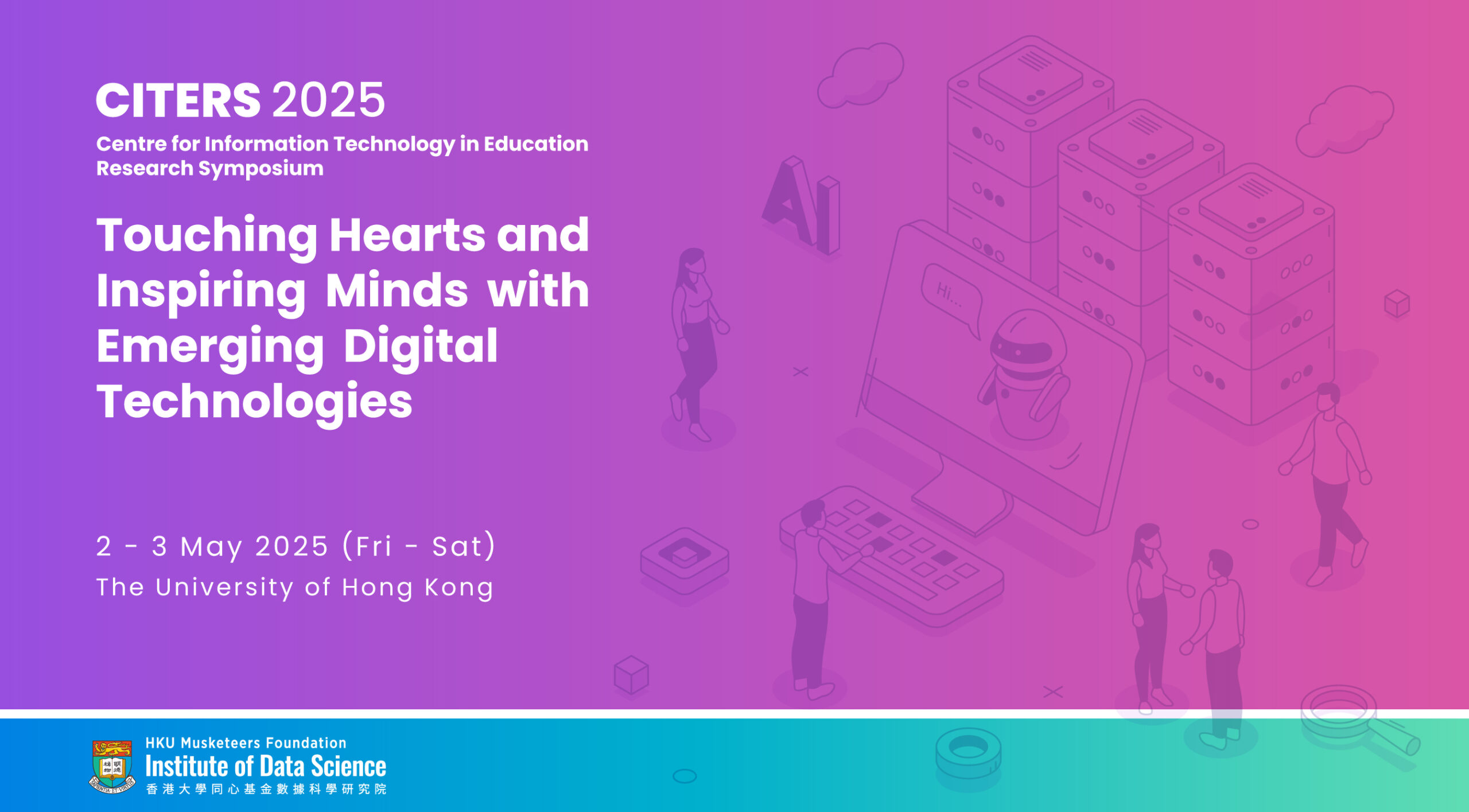Strategic Research Areas
AI and Arts & Humanities
AI for Science & Health
HKU IDS harnesses artificial intelligence (AI) for science and health, using computational techniques and real-world data to accelerate medical breakthroughs and improve public health. The institute develops AI tools to analyze diverse datasets, enabling personalized treatments and smarter clinical decisions. AI models predict therapeutic responses, optimize drug combinations, and explore repurposing existing medications. In public health, AI is used to model disease spread, evaluate policy impacts, and address healthcare disparities, creating data-driven strategies for global health crises.
In scientific discovery, the institute explores how AI can mimic human understanding of the physical world, designing systems that interpret visual scenes, generate 3D models from multisensory data, and decode brain processes. This work aims to build machines that learn, reason, and adapt with human-like flexibility.
Looking ahead, we prioritize multimodal AI, integrating diverse data types to improve diagnostics and personalized care. It also emphasizes trustworthy AI, ensuring algorithms are transparent and fair, and complex systems modeling, simulating large-scale interactions to inform policies. By fostering interdisciplinary collaborations, IDS aims to transform AI into a collaborative partner for scientific exploration, redefining AI’s role in advancing science and health.
Cybersecurity
Advances in data science and AI brought unprecedented challenges and opportunities to cybersecurity. Big data and AI enable security practitioners to detect and prevent attacks more quickly and accurately, but they can also be used by attackers to exploit systems more conveniently. Moreover, AI models and agents themselves are vulnerable to abuses.
HKU IDS researchers are working on AI-driven cybersecurity. They are applying the latest AI technologies to protecting computer systems and networks against attacks. They conduct research on finding vulnerabilities in software automatically, detecting attacks by correlating large, multidimensional data from multiple sources, and patching software and systems to recover from attacks.
HKU IDS researchers are also working on improving the security of AI models, agents, and systems. They are identifying weaknesses and developing defensive mechanisms to prevent against a wide range of attacks, such as adversarial examples, model pollution, membership inference, prompt injection, and jail break. Their goal is trustworthy, robust, explainable AI.
Fundamentals of AI & Data Science
Intelligent Robotics & Systems
In the dynamic realm of Intelligent Robotics and Systems, our research is dedicated to pioneering advancements in robotic manipulation and humanoid technologies, steering us toward the ambitious goal of artificial general intelligence. We harness state-of-the-art AI innovations to expand the capabilities of robots, enabling them to perform complicated manipulation tasks, such as precise object handling in unstructured environments, and engage in sophisticated humanoid interactions mimicking human behaviours. Our approach integrates Foundation Models with advanced Reinforcement Learning and Imitation Learning paradigms, revolutionizing robotic intelligence by enabling unprecedented human-robot collaboration, where robots not only master complex tasks through demonstration but continuously evolve their capabilities through autonomous exploration, marking a significant leap towards achieving human-level dexterity and adaptability in real-world applications.
Through robust international collaboration spanning academia and industry, we foster a vibrant, interdisciplinary ecosystem with researchers, students, and educators. This collective effort addresses critical embodied AI challenges, including bridging the simulation-to-reality gap and scaling robotic systems for practical deployment. The impact of our work is transformative, enhancing robot efficiency and generalization while unlocking revolutionary applications in healthcare, retail, housekeeping, and manufacturing industries. Ultimately, we aim to redefine the future of intelligent robotic systems, making them indispensable allies in tackling global challenges.
What's New
Upcoming
As a multidisciplinary research institute equipped with a wide research network and membership across different Faculties, the Research Postgraduate programme at HKU Musketeers Foundation Institute of Data Science (“HKU IDS”) is designed to provide students with an opportunity to acquire greater expertise in data science through a combination of courses and intensive research under the supervision of a group of prominent researchers.


